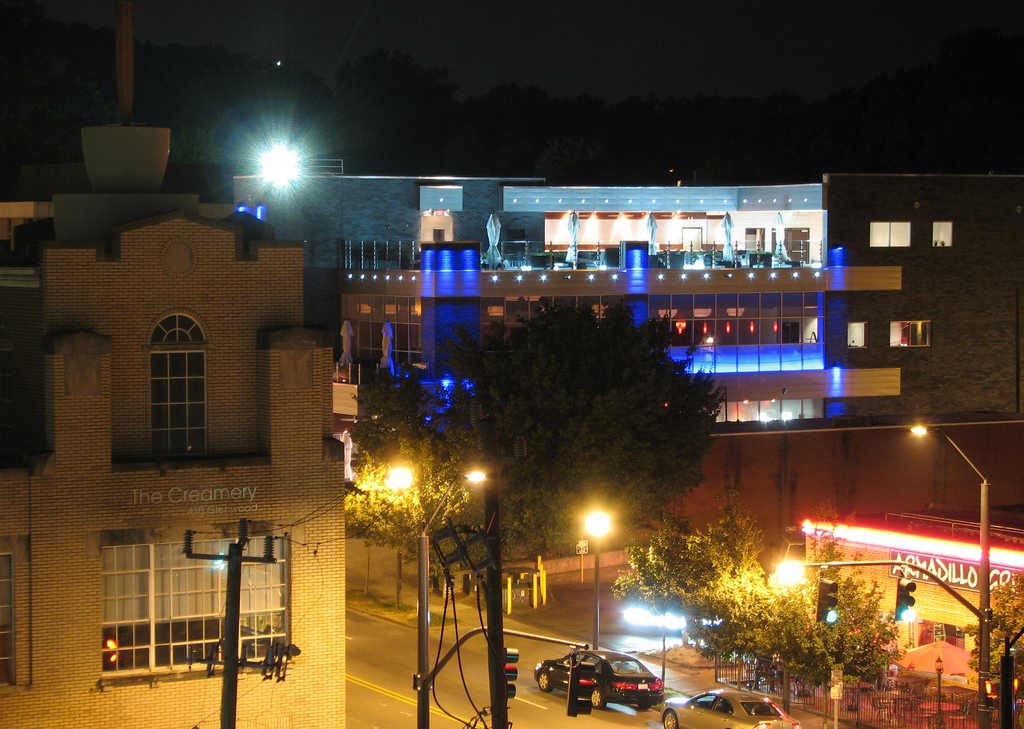A pilot program in the Glenwood South entertainment district would change how the city handles permits for outdoor music.
A proposed hospitality permit would replace the current amplified noise permit, but would require a mediation process between merchants and complaining neighbors. The current permit process is a quasi-judicial hearing, which involves lawyers, sworn testimony and an absence of subjective evidence.
The process has pitted neighbors against bar owners, who want to play music on outdoor patios or decks. Needless to say, everyone was unhappy with it.
The proposed change came out of a Council-appointed task force that included residents and bar owners. It still requires approval from the full City Council.
How it Works
If approved, the new process would be administrative in nature, which means bar and club owners would apply for the permit, pay a fee and receive their permit without the need of a hearing. The bar owner must agree to list contact information on a central website and be willing to enter into mediation with a complaining neighbor.
Residents will be able to contact a representative from the bar or club directly, without having to involve the police. The new system would force merchants and neighbors to have a conversation about how the problem can be handled in a way that satisfies everyone.
Neighbors who don’t feel the problem has been resolved can file a formal complaint with the Raleigh Police Department, which will be reviewed by a noise officer. The officer would evaluate the complaint and determine if mediation is necessary. From there, the officer would bring in a mediator to handle the situation between the merchant and the resident.

Leo Suarez / dtraleigh.com
A view of Solas and The Creamery building on Glenwood South in downtown Raleigh.
Clubs or bars that rack up too many violations or complaints would see fines and, ultimately, revocation of their permit.
The new policy will also begin to collect data that Councilors and police officers can use to make decisions in the future.
“Everything here is very qualitative by its nature,“ said Dan Lovenheim, owner of Cornerstone Tavern and one of the task force members.
Jim Belt, a member of the task force and Glenwood South resident, said the task force was supposed to focus on Glenwood South and Fayetteville Street, but residents from the Fayetteville Street district simply wanted everything to stop at 11 p.m.
Without any willingness to compromise, the task force began focusing on Glenwood South, which has been dealing with these issues for the better part of a decade.
“One of the big problems on the street is ambient noise,” Assistant City Manager Dan Howe said.
Howe said the new permit wouldn’t solve the noise problem created by everyone leaving bars and clubs at 2 a.m. That, he said, is a separate issue now under study.
The pilot program would require a change in the city code and, if approved, would last about a year.
Members of the Law and Public Safety Committee approved going forward with the new policy, but it still needs a vote from the full Council. If approved, it would enter the text change process.
